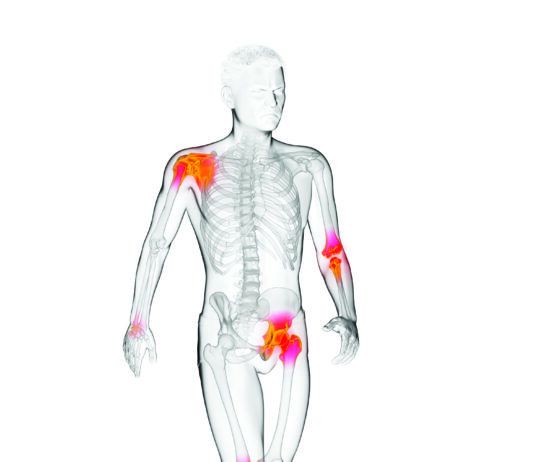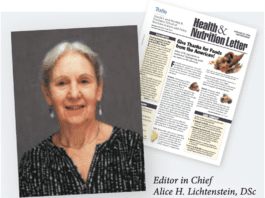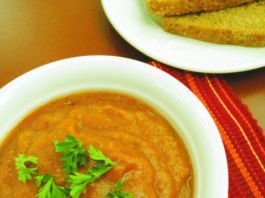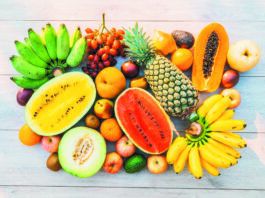Shake the Salt Habit to Reduce Your Risk of Stroke and Heart Disease
Cutting your salt intake could significantly reduce your risk of stroke and cardiovascular disease, according to a new analysis. Researchers systematically reviewed the scientific literature and identified 13 studies of salt/ sodium involving a total of 177,025 participants. Pooling this data, the researchers found that a decrease in intake of 5 grams of salt a day-a little less than a teaspoon-was associated with a 23% lower rate of strokes and as much as a 17% lower risk of cardiovascular disease.
Walnuts Linked to Healthier Blood Vessels
In the latest finding sure to please walnut lovers (not to mention growers), Yale researchers report that a daily dose of walnuts improved the blood-vessel health of type-2 diabetics. David L. Katz, MD, MPH, and colleagues recruited 24 diabetes patients, average age 58, and tested their endothelial function (a measure of the health of blood-vessel linings) before and after eight weeks on a diet containing about two ounces of walnuts daily. Those results were compared to eight weeks on patients usual diet.
Whos Losing the Burger Battle? Health-Conscious Consumers
The latest fight for Americas tastebuds- and dining-out dollars-is being waged with equal parts Angus beef and marketing hype. The trade journal Advertising Age called it Battle of the Big Burgers. Bill Mount, an advertising executive and blogger, commented on one fast-food chains latest volley, Im lovin it. Carls Jr. always brings automatic weapons to a knife fight.
Lifestyle Changes Produce Lasting Benefit Against Diabetes Risk
Along-term followup to the Diabetes Prevention Program trial has good news for the estimated 57 million Americans with high blood-sugar levels that put them in danger of developing diabetes: Intensive lifestyle changes aimed at modest weight loss reduced the rate of developing type 2 diabetes by 34% compared with a control group in people at high risk for the disease. Reducing dietary fat and calories, exercising such as walking about 150 minutes weekly and losing weight also proved more effective in diabetes prevention than metformin, an oral diabetes drug.
Protecting Womens Bones: Is the Secret Soy or the Asian Diet?
Could your hip bones use a little tofu? Scientists report that moderate intake of soy-at least the amount found in about 1.75 ounces of tofu-was associated with reduced risk of hip fractures among women in the Singapore Chinese Health Study. Thats an amount of soy higher than the low levels of consumption in the West, noted lead researcher Woon-Puay Koh, MD, of the National University of Singapore.
Does Depression Lead to Eating Chocolate, or Vice Versa?
Chocolate, which has been getting a lot of good press lately, took a hit recently in its long-standing reputa-tion for improving your mood. Its not clear if chocolate combats depression, according to a new study in Archives of Internal Medicine, or if the sweet treat actually contributes to the problem.
Lung Cancer Odds Lower with Higher Vitamin B6
Higher levels of vitamin B6 and a common amino acid called methionine may reduce your risk of lung cancer, the worlds most common cause of cancer death- whether or not youve ever smoked. A study involving nearly 400,000 participants in the European Prospective Investigation into Cancer and Nutrition (EPIC) reports that higher blood levels of vitamin B6 and methionine, found in most proteins as well as nuts and seeds, were associated with reduced rates of lung cancer regardless of smoking status.
White or Brown Rice? Your Answer Could Affect Diabetes Risk
The process of refining brown rice into white rice strips away healthy nutrients and fiber, while raising the grains glycemic index. According to a new study, refining rice may also make it a contributor to diabetes risk.
Good Cholesterol Linked to Lower Cancer Danger
The good HDL cholesterol, already known to help protect against heart disease, might also reduce your risk of cancer. A new metaanalysis of 24 randomized controlled trials finds that cancer risk dropped 36% for every 10 mg/dl higher increment of HDL cholesterol.
Calories and Fat Choices Could Affect Urinary Incontinence
Extra weight is a key risk factor for urinary incontinence, but a new study suggests that dietary factors may play a role beyond putting on pounds. Women who consumed the most calories were almost three times as likely to suffer urinary incontinence. The association remained even after adjusting for weight, and in fact was stronger among lean women.




























